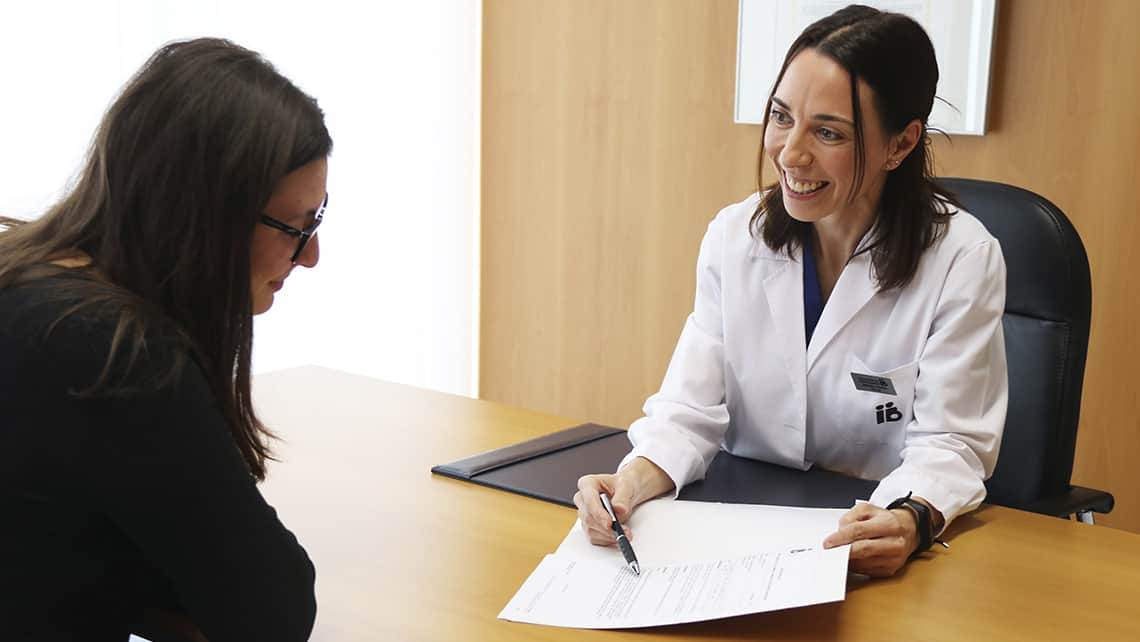10% of couples may be at risk of conceiving babies with rare diseases.
March, 5th 2024

- With advances in genetics, it is now possible to significantly reduce the risk of a future baby suffering from a genetic disease by carrying out a compatibility test.
- Ruth Morales, geneticist: “We are all carriers of recessive diseases, but they can only be a problem when both parents share mutations in the same gene”.
- Instituto Bernabeu’s genetic compatibility study can prevent the transmission of more than 3,000 rare diseases.
Recessive diseases are hereditary diseases found in our genetic map. Although their prevalence is only 1% of all newborns, they are mostly serious and incurable diseases. “We are all carriers of recessive diseases, but they can only pose a problem when both parents share mutations in the same gene,” explains Ruth Morales, coordinator of the Genetic and Reproductive Counselling department at Instituto Bernabeu. Therefore, if our partner is also a carrier of a mutation in the same gene as us, the risk of a child of the couple presenting the disease produced by that gene is 25%, and of being healthy carrier, 50%, which could also have implications for their future offspring. “Ten per cent of couples could be at risk of conceiving babies with some kind of rare disease associated with genetic mutations,” Dr Morales adds.
In this line, there are tests such as the Genetic Compatibility Test, which can help to significantly reduce the risk of transmission of these diseases. This is a study that makes it possible to identify mutations in the genes responsible for recessive and X-linked diseases. The study of this massive DNA sequencing panel gives the possibility to analyse the genes linked to certain diseases.
“This analysis, which we perform in our molecular genetics laboratory on all donor candidates to ensure the safety of each sample, and which we also offer to our patients, reduces the risk of a child being born with one of these diseases from 1 to 100 to 1 in 40,000 – 50,000, thus minimising the risk of a recessive disease in the offspring,” says Dr Ruth Morales.
This test is recommended for couples who want to conceive naturally or through assisted reproduction treatment, especially if one or both members of the couple have a family history or are carriers of a genetic disease or if there is consanguinity between them, as in this case they will have a greater risk of sharing mutations in the same gene. It is a simple procedure carried out through a blood or saliva test and the results are available within 15 days.
If genetic incompatibilities are found in the couple, it is possible to avoid the transmission of the disease with techniques such as In Vitro Fertilisation (IVF), transferring only embryos free of the disease.
More than 3,000 diseases
Researchers at the Instituto Bernabeu’s molecular genetics laboratory have developed the most comprehensive genetic study (extended GCT), a panel of more than 3,000 recessive diseases that analyses 2,306 genes. The most frequent are cystic fibrosis, non-syndromic deafness, thalassaemia, spinal muscular atrophy, phenylketonuria and Gaucher disease.
This complete study includes all the diseases recommended by the SEF (Spanish Fertility Society) for analysis in any preconception genetic study.
Genetics consultation
Instituto Bernabeu offers a consultation specializing in genetic counselling, directed by Dr Ruth Morales, which provides a comprehensive service to all people who require a detailed analysis of their genome. This type of testing allows patients to access crucial information about their genetic profile, which can be key for the diagnosis, treatment and prevention of different diseases. In addition, these genetic tests offer significant benefits, such as personalization of medical treatments according to individual genetic profile and genetic risk-informed family planning.
